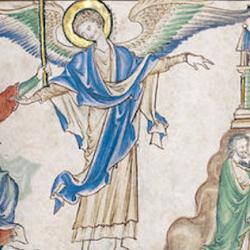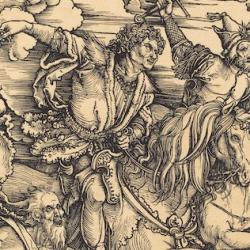Revelation 20:4: And I saw thrones, and they sat upon them, and judgment was given to them.
In our sermon today, we’ve heard about how Moses set up a system of courts in Israel. This doesn’t surprise us. Israel, after all, was a nation, we might even think a “nation-state,” and of course they need laws, courts, judges, and the whole apparatus of government.
It is more surprising for Paul to say that the church has courts. Paul expects that there should be at least one wise Christian in Corinth who can resolve disputes among brothers. If we will judge the world, aren’t we competent to judge trivial cases?
During the centuries after Paul, the church took his exhortation seriously and set up an elaborate court system. Augustine complained that they spend a sizable portion of their week sitting as judge over the petty disputes between their litigious North African parishioners. Canon law, church law, became the model for developments in civil law.
In the modern world, the judicial role of the church has been forgotten or ignored. The central story of modern politics is that the state has progressively taken over responsibilities and power from other institutions, especially from the church. We Americans often complain about the rampant growth of state power, but too often the church has been happy to hand over her responsibilities to the state. If Paul’s comments about church courts sound odd to us, it’s a sign of how deeply we’ve sold ourselves to modernity.
What does that have to do with this table? We sit to eat this meal, and that’s partly to emphasize that this is a meal. But our posture is also a sign of our enthronement. Thrones have been set up and judgment has been given to the saints. We sit because we want to embody the hope implicit in Paul’s questions: Do you not know that the saints will judge the world? Do you not know that we shall judge angels?










